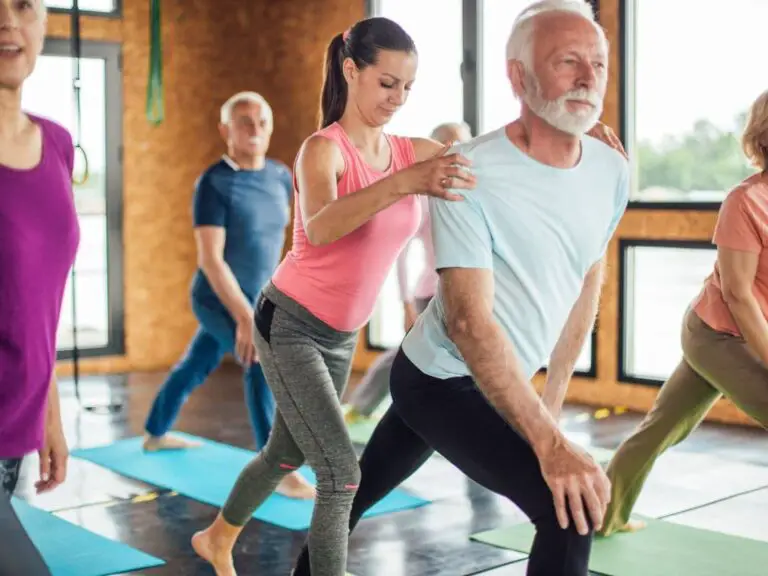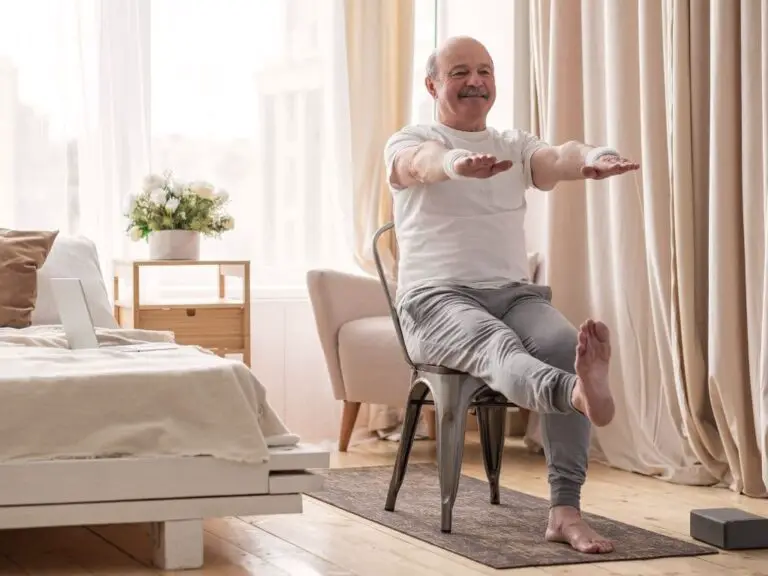What Are the 6 Types of Lifestyle?
As we age, it is important to be aware of the different types of lifestyles and how they can affect our health.
There are six main types of lifestyles:
- sedentary,
- active,
- semi-active,
- outdoorsy,
- social and
- solitary.

Each lifestyle has its own set of benefits and risks associated with it. Knowing which lifestyle best suits you can help you make informed choices about your health and wellbeing.
Six Types of Lifestyles That Affect Your Health
1. Sedentary Lifestyle
A sedentary lifestyle is characterized by a lack of physical activity. People who lead this type of lifestyle spend most of their time sitting or lying down. They may work in an office, watch television, or play video games for long hours. This type of lifestyle can lead to obesity, heart disease, and other health problems.
2. Active Lifestyle
An active lifestyle is the opposite of a sedentary lifestyle. People who lead an active lifestyle engage in regular physical activity. They may participate in sports, go to the gym, or take part in outdoor activities. This type of lifestyle can help maintain a healthy weight, improve heart health, and reduce the risk of chronic diseases.
3. Semi-Active Lifestyle
A semi-active lifestyle is a combination of a sedentary and active lifestyle. People who lead this type of lifestyle may have a desk job but engage in physical activity outside of work hours. They may go for a walk, jog, or participate in a fitness class. This type of lifestyle can help maintain a healthy weight and improve overall health.
4. Outdoorsy Lifestyle
An outdoorsy lifestyle is characterized by a love for nature and outdoor activities. People who lead this type of lifestyle may enjoy hiking, camping, fishing, or other outdoor activities. This type of lifestyle can help reduce stress, improve mental health, and increase physical activity.
5. Social Lifestyle
A social lifestyle is characterized by a love for socializing and spending time with others. People who lead this type of lifestyle may enjoy going out to restaurants, attending parties, or participating in group activities. This type of lifestyle can help improve mental health and reduce feelings of loneliness and isolation.
6. Solitary Lifestyle
A solitary lifestyle is characterized by a preference for spending time alone. People who lead this type of lifestyle may enjoy reading, writing, or engaging in other solitary activities. This type of lifestyle can help improve mental health and reduce stress.
Senior Health and Wellness Tips
As we age, it’s important to maintain our health and wellness. Here are some tips for seniors to stay healthy and happy:
1. Get regular checkups and screenings. This is one of the most important things you can do for your health as a senior. Be sure to get your annual physical, flu shot, and any other recommended screenings (mammogram, colonoscopy, etc.).
2. Eat a healthy diet. Eating nutritious foods helps keep your energy up and your immune system strong – two key components of good health as you age. Make sure to include plenty of fruits, vegetables, whole grains, lean protein, and low-fat dairy in your diet.
Limit unhealthy fats (saturated and trans fats), added sugars ,and salt .
3. Stay active. Getting regular exercise is essential for maintaining both physical and mental fitness as a senior citizen . It doesn’t have to be strenuous – even moderate activity like walking or gardening can make a big difference in your health .
Just be sure to consult with your doctor before starting any new exercise regimen.
4. Socialize regularly. Maintaining social ties is an important part of staying mentally sharp as you age. As well as providing companionship , interacting with others gives you cognitive stimulation that can help ward off dementia and other mental decline.
So try to stay connected with family & friends , attend community events , or join clubs or groups with likeminded interests
5. Get enough sleep. Sleep plays an important role in overall health at any age but it becomes especially crucial during the later years when our bodies need time to recover from everyday wear & tear.
Most adults need 7-8 hours per night but this may vary depending on individual needs so talk to doctor if you’re having trouble sleeping.
Lifestyle Factors Affecting Your Health
There are six types of lifestyles that can have a significant impact on your health as you age. Here are some other lifestyle choices that can affect your health:
The first is the way you eat. As we age, our bodies require less food and more nutrient-dense foods. Eating a healthy diet helps to maintain mental sharpness, prevent chronic disease, and keep your energy levels up.
The second lifestyle factor is how active you are. Exercise has innumerable benefits for seniors, including improved balance and flexibility, increased strength and endurance, better heart health, and sharper cognitive skills. Even moderate exercise can make a big difference in your overall health.
Sleep is another important aspect of maintaining good health as we age . Most adults need between 7 and 8 hours of sleep each night , but many seniors get much less restful sleep . Poor sleep can lead to fatigue , memory problems , depression , anxiety , falls , and other serious health issues .
The fourth lifestyle factor that affects senior wellness is social engagement. Isolation and loneliness are linked to an increased risk of high blood pressure , heart disease , stroke , Alzheimer’s disease , anxiety disorders ,and suicide .
Staying connected with family & friends (both in person & via social media ) can help reduce stress levels & improve both mental & physical well – being.
Finally two additional lifestyle choices which affect senior wellness include smoking cigarettes & drinking alcohol sensibly.
Smoking cigarettes can cause a number of health issues for seniors, such as increased risk for respiratory problems and cardiovascular diseases.
Drinking alcohol sensibly can provide some health benefits, such as reducing the risk of heart disease, but can also increase the risk of falls and other accidents.
It is important for seniors to avoid smoking and drink alcohol in moderation.
The Different Ways Your Lifestyle Can Impact Your Health
Your lifestyle choices have a big impact on your overall health and wellness, especially as you get older.
Here are some tips to help you make healthy choices that will keep you feeling good as you age:
1. Get regular exercise. Exercise is important for maintaining strength, balance, and flexibility, all of which can help prevent falls and other injuries. It also helps improve circulation, heart health, lung function, and mental sharpness.
Even moderate exercise – such as brisk walking – can make a difference in your health.
2. Eat a healthy diet. A healthy diet includes plenty of fruits, vegetables, whole grains, lean protein sources, and low-fat dairy products.
Avoid processed foods, sugary drinks (including fruit juice), excessive amounts of saturated or unhealthy fats (such as from fried foods), and salt/sodium.
All of these can contribute to high blood pressure , which puts strain on the heart and vessels . Eating too much sugar can also lead to weight gain , which raises the risk for diabetes .
Adding more fiber – found in whole grains, beans, peas, lentils, nuts & seeds -to your diet can promote gut health & digestion while helping preventing constipation common with aging .
Healthy eating habits combined with regular physical activity will help maintain a healthy weight throughout your life. These practices will decrease likelihood developing chronic diseases like hypertension, stroke & Alzheimer’s later in life .
Quit smoking if you haven’t already done so. Smoking is one of the worst things you can do for your health at any age; but it’s especially harmful as you get older because it speeds up the aging process by damaging collagen (the protein that gives skin its elasticity).
How to Maintain a Healthy Lifestyle as a Senior Citizen
As we age, it becomes increasingly important to maintain a healthy lifestyle. This is especially true for senior citizens, who may be more susceptible to health problems.
However, staying healthy as a senior citizen can be difficult, since many seniors have chronic conditions that need to be managed. Additionally, seniors may not get enough exercise or eat a balanced diet.
Thankfully, there are some things that seniors can do to stay healthy and improve their quality of life. Here are some tips:
1) Get regular checkups and screenings. It’s important for seniors to see their doctor regularly so that any potential health problems can be detected early on. Seniors should also get routine screenings for things like cancer and cholesterol levels.
2) Stay active and eat a healthy diet . Exercise is crucial for people of all ages, but it’s especially important for seniors in order to maintain muscle mass and bone density . Eating a nutritious diet is also key , as this can help reduce the risk of developing obesity , heart disease , stroke , diabetes , and other chronic conditions.
3) Quit smoking . If you’re a smoker over the age of 50, quitting smoking is one of the best things you can do for your health . Smoking increases your risks of developing cancer , lung disease , heart disease , stroke , and other serious illnesses .
4) Limit alcohol consumption . Drinking too much alcohol can lead to liver damage , high blood pressure , heart failure.
5) Get adequate sleep. Most adults need between 7-8 hours of sleep per night ; however, as we age our sleep patterns often change.
6) Reduce stress whenever possible Unfortunately, stress is often unavoidable; however there are ways to manage it better such as yoga.
Tips for Seniors to Improve Their Overall Well-being
As we age, it becomes increasingly important to take care of our bodies and minds. There are a lot of ways to do this, but here are some tips specifically for seniors to help them improve their overall well-being:
1. Get regular exercise. Exercise is important for everyone, but it can be especially beneficial for seniors in terms of improving balance, flexibility, and strength. Even just walking a few times a week can make a big difference.
2. Eat healthy foods. A nutritious diet is crucial at any age, but it’s even more important as we get older since our bodies become less efficient at absorbing nutrients from food. aim to eat plenty of fruits, vegetables, whole grains, and lean protein; and limit refined carbohydrates, saturated fats, sugary drinks etc.
3 Drink plenty of water. Staying hydrated is essential for good health at any age ,but It’s particularly important for seniors because dehydration can cause dizziness and increase the risk of falls . Be sure to drink enough fluid throughout the day , including during hot weather or when you’re exercising .
4 Get adequate sleep. Most people need around eight hours of sleep per night , although some may need more or less depending on their individual needs . However Seniors tend to require less sleep than younger adults due in part to changes in sleeping patterns that occur with aging such as waking up multiple times during the night.
There are many things you can do if you have trouble sleeping , such as avoiding caffeine before bedtime and establishing a relaxing bedtime routine.
Promoting Successful Aging: What You Need to Know About Living a Healthy Life as You Grow Older
Promoting successful aging is all about making sure you remain healthy as you grow older. There are a few key things to keep in mind when it comes to senior wellness tips:
1. Keep active and engaged – both mentally and physically. Research has shown that staying active can help reduce the risk of developing dementia, depression, and other chronic health conditions. Maintaining social connections is important for overall mental and emotional wellbeing.
Active seniors often find ways to stay connected through volunteering, part-time work, community involvement, or taking classes at their local community center or university extension programs.
If you’re not currently involved in any activities outside the home, now might be a good time to start thinking about ways to get more engaged with your community.
2. Eat a healthy diet – Eating nutritious foods helps promote general health and vitality at any age; however, it’s especially important for seniors who may be more susceptible to chronic health problems like heart disease or diabetes .
Make sure your diet includes plenty of fruits, vegetables whole grains, low-fat dairy , lean protein sources , and limited amounts of saturated fat , cholesterol sodium . You might also want consider taking a daily multivitamin supplement if you don’t think you’re getting all the nutrients you need from food alone .
3. Managing stress effectively is essential for physical and mental health, especially as we get older. Seniors often face unique stressful situations such as retirement, lifestyle changes, marital status changes, and increasing health care costs.
To manage stress successfully, it is important to find helpful coping mechanisms that work for you, identify personal triggers so they can be avoided, plan ahead whenever possible, and break down big tasks into manageable pieces.
Seeking help from a mental health professional can be beneficial in developing stress management skills.
Frequently Asked Question
-
What are the 6 types of lifestyle?
All ages of men can enhance their quality of life and health by following these lifestyle factors: regular exercise, healthy eating, brain activity, social activities and regular doctor visits.
-
What is average death age?
In the US, 73.7 years was the average age at death. This is less than 1% lower than 2019’s 73.8 year old age. Centers for Disease Control and Prevention.
-
Why do elderly lose their balance?
The vestibular system is located inside the inner ear. It helps us to perceive balance. The vestibular system is connected to the brain and sends a signal to our bodies when we’re about to fall. This allows us to direct the body to corrective actions. The vestibular system’s cells age and become less effective in correcting our situation.
-
How often should a woman shower?
A majority of doctors agree that a shower every day is sufficient for most people. A daily shower can cause skin issues. For many, however, two to three times per week may suffice and be sufficient to keep good health.
-
What is the golden rule of eating?
COME BACK to Earth: Eat whole foods, which are naturally found. These foods are more natural and less processed than other forms, such as whole grains, fruits, vegetables, and high-fiber carbohydrates. 2. MAKE A LOT OF RAINBOW: Include fruits and/or veggies with every meal.
-
What is a ghost poop?
Three definitions of ghost poo are given by Islam: 1. A need to pee but it turns out to be gas; 2. A poop so clean it goes down the drain without you being able see it. 3. Visible poop on the toilet and zero marks after washing.
-
Which two Colours become difficult to see as aging occurs?
It can cause them to lose their “blue yellow” vision. This could prevent them from being able to distinguish blue from purple, yellow from yellow-green and green from yellow-green in some situations. Schneck stated that colors can cause problems when they are washed.
-
What are the 5 aspects of holistic health?
Personal health can be described as five major aspects: emotional, mental, social, spiritual and intellectual.
-
What is a holistic diet?
What does holistic nutrition mean? For optimal health and wellbeing, holistic nutrition means eating food that is as natural as it can be. Holistic nutrition is all about eating whole, natural, unprocessed foods that are organic, local, and unrefined.
-
What is an example of a wellness program?
Many wellness programs include weight loss contests, stress management, exercise or resilience education, as well as smoking cessation programs and wellness assessments. These activities are intended to improve the health and nutrition of employees and individuals.
-
What are the 4 types of lifestyle?
There were four lifestyle styles among the students who reported high levels of subjective well-being. These lifestyle types were tentatively called “hedonistic”, “adventuristic”, “individualistic”, or “promethean.”
-
What makes a happy life?
The study found that people are happier in their relationships than they are with money and fame. These ties are more reliable predictors for long, happy lives than social status, intelligence, genes, and other factors.
-
Is 75 considered old?
The chronological age at which an individual is considered to be 65 years old or more has traditionally been defined as being the “older” category. People aged 65-74 are often referred to early elders, and those older than 75 are called late old.
-
What are 5 main factors that contribute to good health?
Research shows that five key factors can make a big difference to overall health and wellbeing: (1) diet, (2) rest, (3) exercise and (4) posture. (5) Avoiding the use of tobacco and alcohol.
-
What are the 8 aspects of life?
The 8 dimensions of wellness are interdependent: intellectual, physical, mental, emotional, spiritual, professional, financial and environmental. (Table 1 (1)
Conclusion
There are different types of lifestyles that people lead. Each type has its own benefits and drawbacks. It’s important to find a lifestyle that works for you and promotes your physical and mental health. Whether you prefer a sedentary, active, semi-active, outdoorsy, social, or solitary lifestyle, make sure to prioritize your health and well-being.







